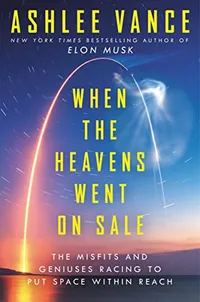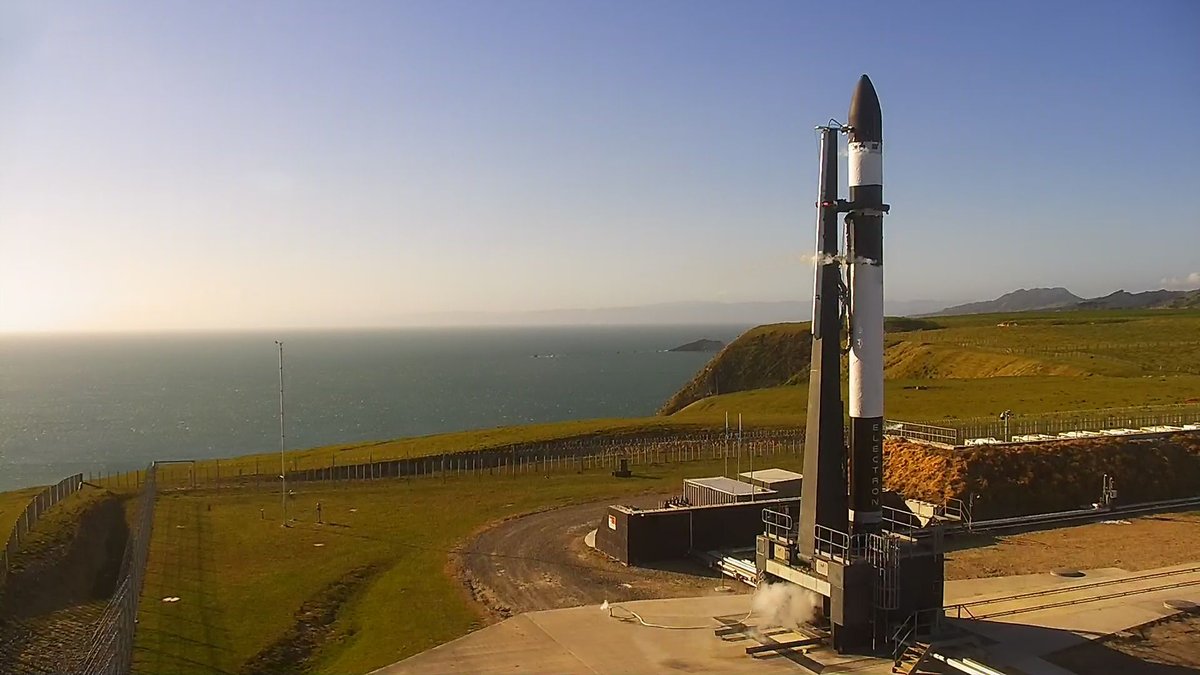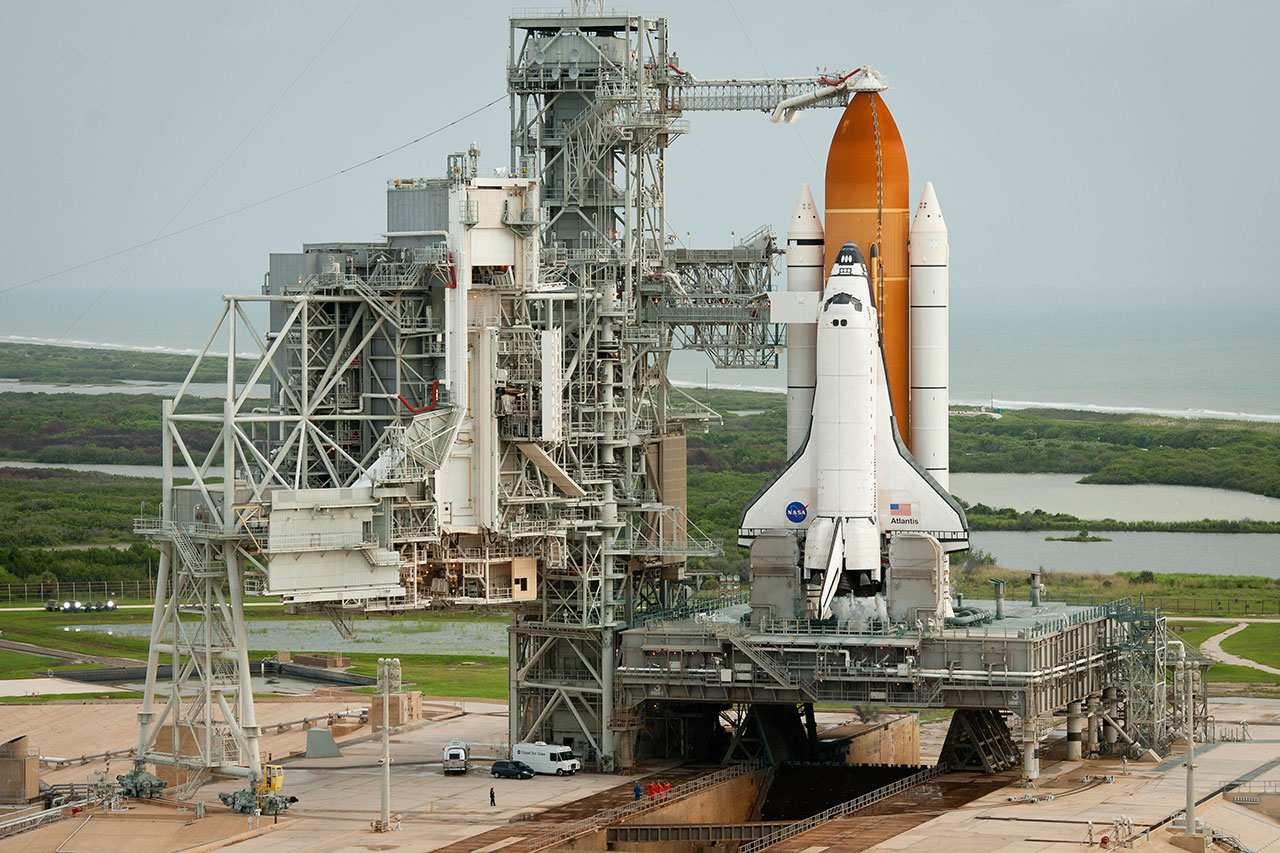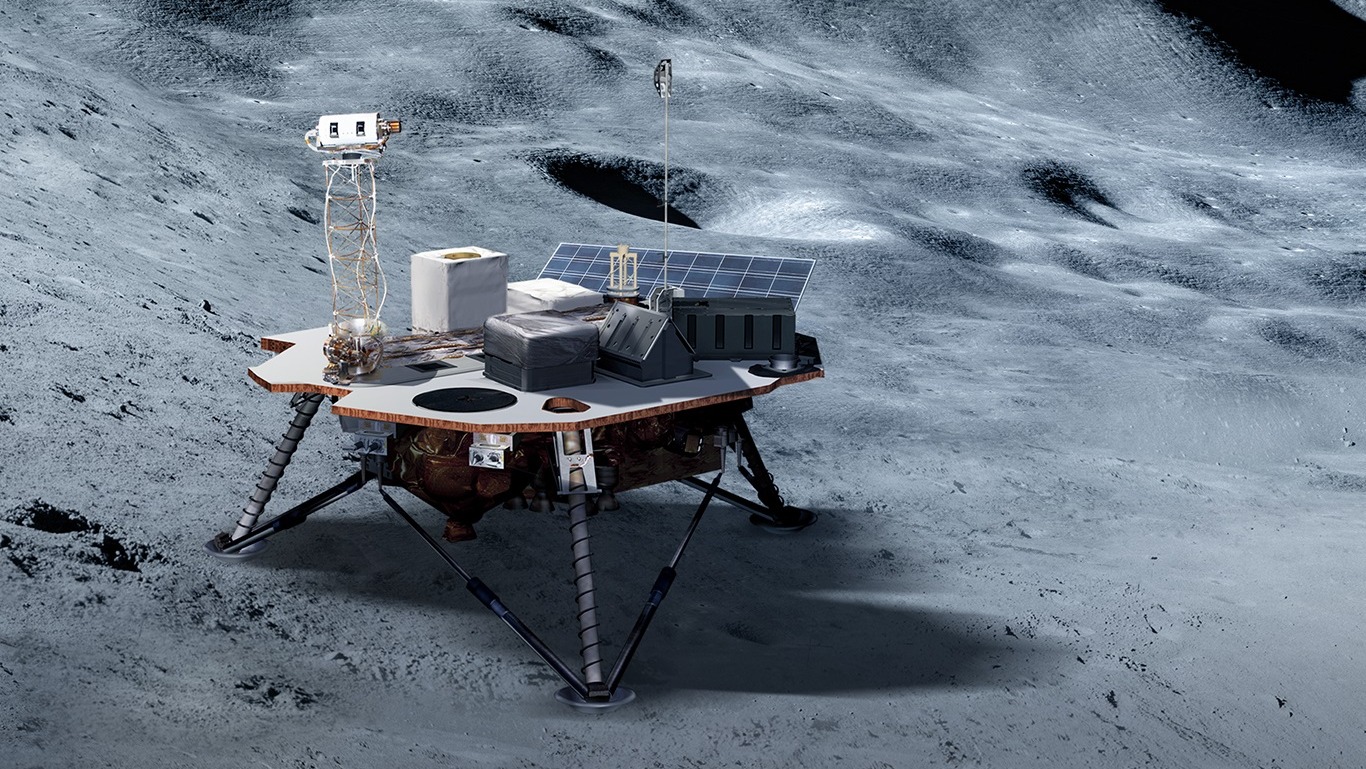Ashlee Vance's 'When The Heavens Went On Sale' unveils the mysterious world of space startups
'It's really meant to be a story of larger-than-life characters in stranger-than-fiction situations.'
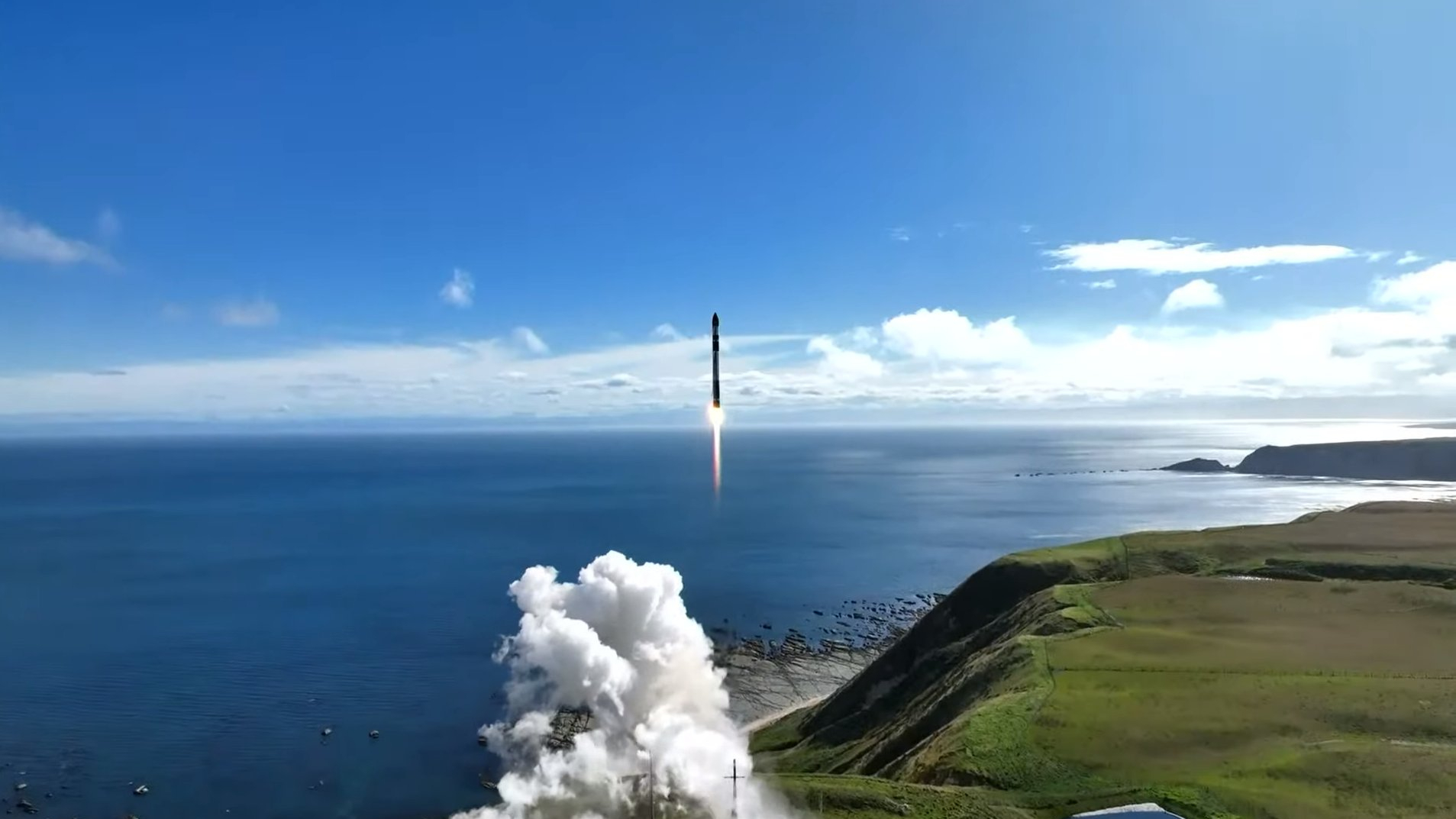
Breaking space news, the latest updates on rocket launches, skywatching events and more!
You are now subscribed
Your newsletter sign-up was successful
Want to add more newsletters?

Delivered daily
Daily Newsletter
Breaking space news, the latest updates on rocket launches, skywatching events and more!

Once a month
Watch This Space
Sign up to our monthly entertainment newsletter to keep up with all our coverage of the latest sci-fi and space movies, tv shows, games and books.

Once a week
Night Sky This Week
Discover this week's must-see night sky events, moon phases, and stunning astrophotos. Sign up for our skywatching newsletter and explore the universe with us!

Twice a month
Strange New Words
Space.com's Sci-Fi Reader's Club. Read a sci-fi short story every month and join a virtual community of fellow science fiction fans!
Best-selling author Ashlee Vance turns from SpaceX to four other fast-growing commercial space companies in his new book.
Vance, well-known for his best-selling biography of SpaceX CEO Elon Musk, turns his focus to commercial space more generally in his new book "When the Heavens Went on Sale: The Misfits and Geniuses Racing to Put Space Within Reach" (Ecco, 2023).
The book traces the back story of Rocket Lab, Planet Labs, Firefly and Astra as these four commercial space companies evolve from startups to significant players in the industry. Whether pursuing reusable rockets or targeting lunar missions, these companies are just a few examples of how quickly startups and other private companies are changing spaceflight, Vance argues.
Space.com caught up with Vance this week to talk about the new things he learned about these companies, which are launching payloads to Earth orbit and even the moon, to gaze at our planet or to provide satellite services.
Related: The private spaceflight decade: How commercial space truly soared in the 2010s
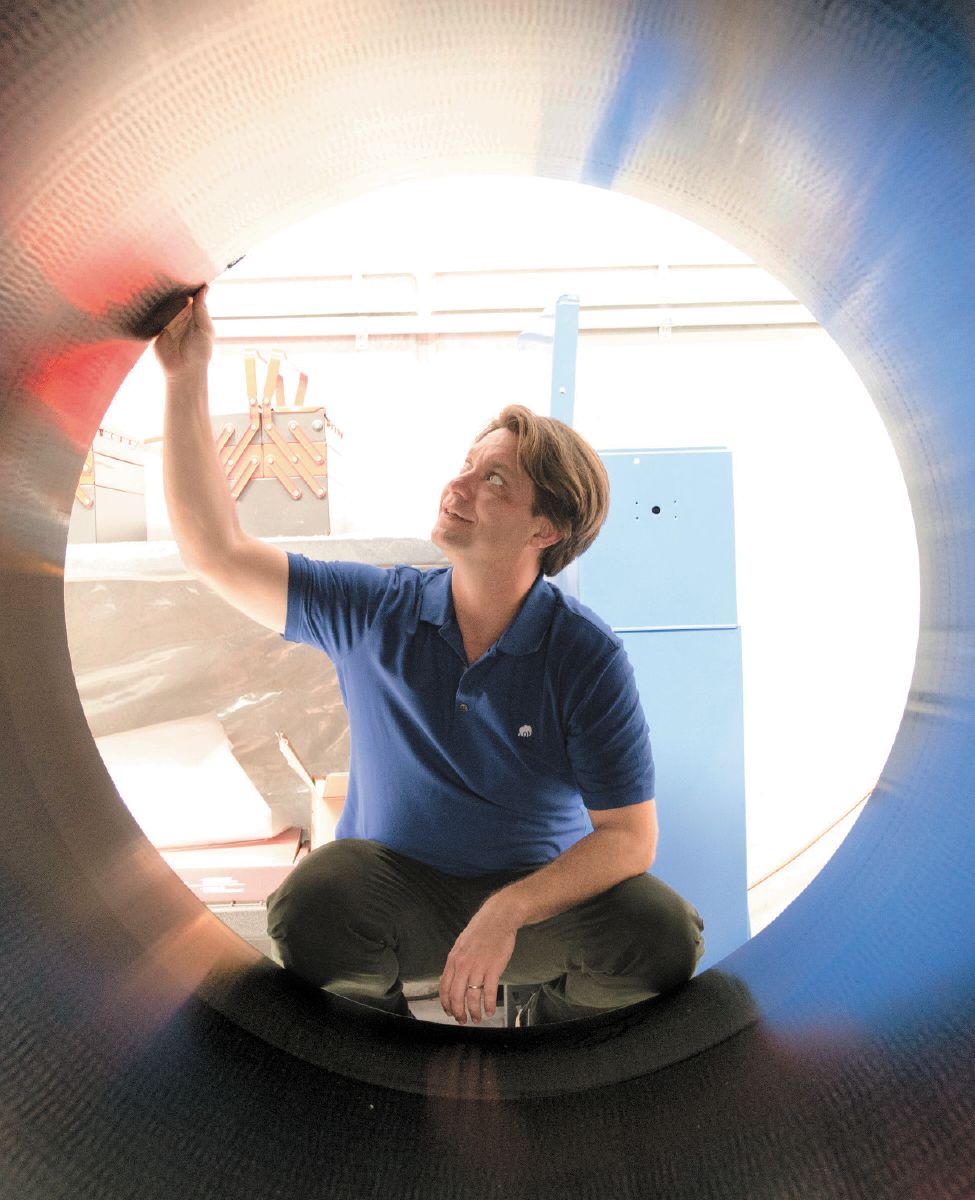
Ashlee Vance is the New York Times bestselling author of Elon Musk and a feature writer at Bloomberg Businessweek. He is also the host of Hello World, a travel show that centers on inventors and scientists all over the planet. Previously, he worked as a reporter for the New York Times, the Economist, and the Register.
Space.com: Many readers will remember you from your best-selling biography "Elon Musk: Tesla, SpaceX, and the Quest for a Fantastic Future" (Ecco, 2017), about Elon Musk. If you were to do an update to the book today, what sort of information would you emphasize or want to include?
Vance: That book captured this moment in time where, after these ups and downs in his career, Musk was really just starting to hit his stride. And even though we had these quite spectacular glimpses of his eccentric personality in there, the full bloom was yet to show itself. When that book ends, he's been adopted by the left and he's this symbol of green technology, and is pushing against the right. Clearly, since the book went out, his politics has shifted and gotten muddy. Then the full Elon has let himself loose on Twitter. So you've got this this figure — he's much more complicated and polarizing, I would say, than the one that I left off.
Breaking space news, the latest updates on rocket launches, skywatching events and more!
Related: SpaceX: Facts about Elon Musk's private spaceflight company
When the Heavens Went on Sale: The Misfits and Geniuses Racing to Put Space Within Reach | $29.09 at Amazon
Ashlee Vance follows four space companies —Astra, Firefly, Planet Labs, and Rocket Lab — who are among the commercial space companies launching satellites and working to reshape the industry.
Space.com: SpaceX gets a lot of attention within the commercial space industry, but your book is focusing on four other companies: Astra, Firefly, Planet Labs, and Rocket Lab. Can you briefly talk about what makes each of these companies unique in the industry?
Vance: I purposely wanted to move away from from the billionaires in space tourism, and missions to Mars, and focus on what I see as the more immediate and real goings-on in space and in low Earth orbit. Planet I see as a great example of the reason why we're going to low Earth orbits and what we can do. Their satellites represent both a lot of the idealism of commercial space and also the action of how going to space can actually do something for life on Earth.
Rocket Lab was for me this this almost hero's journey of a platonic engineer in founder Peter Beck. I wanted to capture this very unlikely story of a guy who doesn't even go to university and is living in a country [New Zealand] with no aerospace history or industry to lead basically the second coming of SpaceX. I thought that showed how far the commercial space industry has come; something like that would have been impossible not too long ago.
Related: Photos of Earth by Planet Labs' satellites (gallery)
With Astra, on one level, the story was about the most extreme end of the rocket business, the cheapest rocket that's being mass produced with a goal of making one every day and sending one up every day. But it was also, for me, a story of the struggle and what goes into this. I had the opportunity to be at the company since Day 1, and to be a fly on the wall, and to really show people what it takes to make rockets and the clear ups and downs that come with that — and the trauma. It still remains a very hard thing to do.
The Firefly story? People should know it is less of a Firefly story and really a story of Max Polyakov, the Ukrainian business person who ends up taking over this bankrupt rocket maker in Texas. To me, it's something like a tragedy of commercial space. This person who puts $250 million into a rocket company ends up being, spoiler alert, forced out of the company by the U.S. government. It really gets into the changing nature of geopolitics around all this, and the chaos that's about to ensue.
Space.com: One source in your book traces back some of the commercial activity to the 1980s Department of Defense's Strategic Defense Initiative (SDI), which was nicknamed "Star Wars" and had a headline focus of missile defense. Can you talk a bit about why and what influences SDI provided today on the U.S. space program?
Vance: That SDI history really centers on Pete Worden, who was this astrophysicist-general in the U.S. Air Force who was not only a major figure in SDI, but also this iconic classic visionary. For many decades he had a vision, a clear picture in his head of where he thought all this was going in terms of cheap rockets that could be sent off readily, and cheap satellites. Just generally doing things in space differently. I think SDI was something of a forbearer in the sense of radical ideas and investing in space in a different way. It's really for me around the person of Pete, who is this figure lurking in the background of the military and the government and NASA. He was really filtering these ideas through the United States when something like SpaceX arrived to make it feel feasible and exciting.
Related: Presidential Visions for space exploration: From Ike to Biden
Space.com: How much of an influence did NASA have on early commercial space activity, especially with the space shuttle and programs like commercial cargo on the International Space Station?
Vance: NASA had a huge influence on commercial space, although it always struck me as conflicted. It always felt like there were a couple of different camps within NASA: the one that doubted commercial space and was more tied to military contractors, the status quo that didn't really want to see change; and then a smaller group within NASA that saw the promise of where commercial space could go. Without question, SpaceX greatly benefited from NASA support and would not be where it is today without NASA. Even a lot of these rocket startups and satellite startups get contracts that help them get going and survive lean times.
I argue in the book that I'm not really here to bash NASA over the head relentlessly, but it's — to me — a very flawed organization still. It seems to have an allergic reaction to doing things in a new way. It's because of the way it's governed in the United States. It's is just too beholden to these lumbering laggards of military contractors, and Congress. Having its budget and agenda set by Congress is a disaster.
Space.com: Do you have a favorite story in the book highlighting international space outside of the United States?
Vance: Rocket Lab is my favorite example, because, even though it's technically based in the United States, it's a New Zealand company that nobody ever thought would be would be possible to be in New Zealand. You can argue quite convincingly that after the United States, New Zealand has the most exciting vibrant commercial space economy because of Rocket Lab. There's a dozen or so aerospace startups in this very small country. It's become something of an epicenter for all this talent.
If you look around the world, there's rocket startups in Japan and Europe, too. It's just an exciting time globally to see all these different places having a go at this [after] a handful of governments were the dominant spacefaring nations for so long. It is giving way to something new.
Space.com: While your book focuses on a few individuals, I also get the sense that they are meant to represent the vast teams of people who have made commercial space such a success today. How well are we doing in media and related industries in recognizing the thousands of folks who are forming the backbone of the industry?
Vance: There's this obvious tendency to focus on the people that are up top, but in the Astra part of my book, I went out of my way to try and show that these things take a wealth of talent to make. The characters and their backgrounds are fascinating, and probably quite different than what people expect when the average person thinks of space. This is not the era of companies full of MIT [Massachusetts Institute of Technology] PhDs, or our "best and bravest" pilots doing test missions. There's high school dropouts and young people coming out of the military who make up the new era of commercial space.
In this part of the book, I really wanted to show — especially for young readers — the incredible and diverse backgrounds of all these people that really have a passion for this, and are willing to work hard. This is not some elitist industry now. You can get into it. But I think probably the press writ large, we just focus so much on the leaders when clearly, these things take a team of people to be a success.
Related: VP Kamala Harris calls to diversify US space workforce
Space.com: Many companies are now targeting the moon for commercial activity. Can you talk about which of the four companies you featured in your book are going there, and how?
Vance: Well, it's an area that I focus on less clearly in the book, and less in general. I just get so much more excited about low Earth orbit, because I think that's where the action is really taking place. I find a lot of this other stuff interesting and worthwhile but just so long term.
But I do think it's exciting that we've already seen Rocket Lab, with this small rocket from New Zealand, doing a mission to the moon. That's amazing. I also write in the book about the group of people who are noodling the idea of what a lunar constitution might look like, and could we do governance differently there. What excites me is the idea of not repeating all our same mistakes and trends here on Earth, and maybe trying something new up above us.
Space.com: What's next for the four companies you featured?
Vance: Planet Labs is in some ways the furthest along, in that it's already put up so many satellites and has delivered this service. But I think it's early days for people understanding how to use these images it provides.
Rocket Lab has a clear competitor to SpaceX Falcon 9 coming. Its Neutron rocket will be very exciting to see; so far it's been the only company, really, that's able to even vaguely keep up with SpaceX and has this track record to build on.
Astra has a bit of "make it or break it" moment with a new rocket, and really needs it to succeed if it's able to launch later this year or so. Then Firefly, poor Max, one of my favorite characters in the book. He's been pushed out, but Firefly's still going and they have a mission coming up that's very much in the spirit of my book. The U.S. government, on very short notice, is going to have them try to do a rapid rocket launch without the usual preparation time, in the spirit of this idea of responsive [access to] space.
Space.com: Anything else you want to include to tell us more about the book?
Vance: I want people to know that, yes, this is a space book and a business book, but it's really meant to be a story of larger-than-life characters in stranger-than-fiction situations. I worked very hard — and spent five years getting myself in all these rooms — to give people what I think is the first time ever sitting inside these companies and seeing what commercial space looks like at this level. I wanted to open this world up to the readers.
This interview has been edited and condensed.
Elizabeth Howell is the co-author of "Why Am I Taller?" (ECW Press, 2022; with Canadian astronaut Dave Williams), a book about space medicine. Follow her on Twitter @howellspace. Follow us on Twitter @Spacedotcom or Facebook.

Elizabeth Howell (she/her), Ph.D., was a staff writer in the spaceflight channel between 2022 and 2024 specializing in Canadian space news. She was contributing writer for Space.com for 10 years from 2012 to 2024. Elizabeth's reporting includes multiple exclusives with the White House, leading world coverage about a lost-and-found space tomato on the International Space Station, witnessing five human spaceflight launches on two continents, flying parabolic, working inside a spacesuit, and participating in a simulated Mars mission. Her latest book, "Why Am I Taller?" (ECW Press, 2022) is co-written with astronaut Dave Williams.
